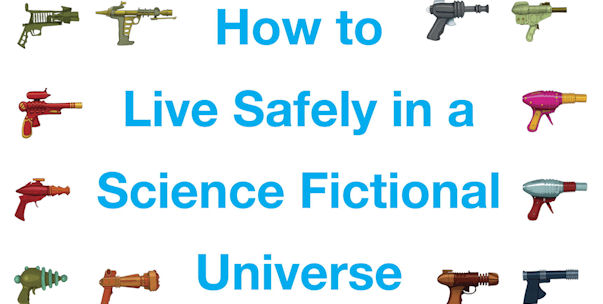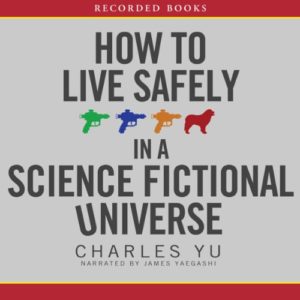


On the one hand, Yu’s status as the recipient of awards such as the Sherwood Anderson Prize (for “Third Class Superhero” in 2004) and the National Book Award (for Interior Chinatown in 2020) speak to the cultural standing of his work among arbiters of literary prizes (“About”). Ultimately, through using the language of science fiction to capture the melancholia of racial assimilation, How to Live Safely in a Science Fictional Universe contests the hegemony of realist fiction to depict psychological states as well as the necessity for delineating between genre and literary fiction in the first place.īefore proceeding to Science Fictional Universe itself, it is useful to contextualize Yu’s place within the contemporary literary marketplace. This inability to assimilate fully-to be just ‘American’ as opposed to ‘Asian-American’-produces a profound sense of racial melancholia, a term I borrow primarily from David Eng and Shinhee Han’s work on the subject. By using science fiction to frame a story of immigrant angst, Yu reframes the dream of multiethnic assimilation itself as a particular form of science fiction, one whose conventions and expectation are just as restricting as the familiar tropes of genre fiction.

In this paper, I argue that Yu deliberately works to destabilize the lines between literary fiction, Asian-American literature, and science fiction.

As Science Fictional Universe is a novel more interested in questions of immigrant struggle than the implications of time travel or multiverse theory, one must ask why Yu chooses to work in science fiction and not literary realism. Given the prominence of such themes, Science Fictional Universe’smain departure from a paradigmatic model of Asian-American literature would be its status as science fiction. Time travel may drive the plot of Science Fictional Universe, but it is an examination of the promises and disillusionments of the American Dream that forms the novel’s thematic center. Yet despite the prevalence and normalization of many recognizably sci-fi tropes, Yu’s novel is in many ways less recognizably science fiction than it is Asian American. When time machine technician Charles Yu (referred to as Charles for the remainder of this paper) shoots his future self and becomes trapped in a time loop, he is reassured by his AI companion TAMMY that “it happens to everyone, some even by choice” (Yu 97). In Charles Yu’s How to Live Safely in a Science Fictional Universe, the existence of multiple universes is an established fact, AIs are accepted as middle managers and drinking buddies, and time travel is a quotidian practice. Melancholia, Assimilation, and Genre in Charles Yu’s How to Live Safely in a Science Fictional Universe


 0 kommentar(er)
0 kommentar(er)
